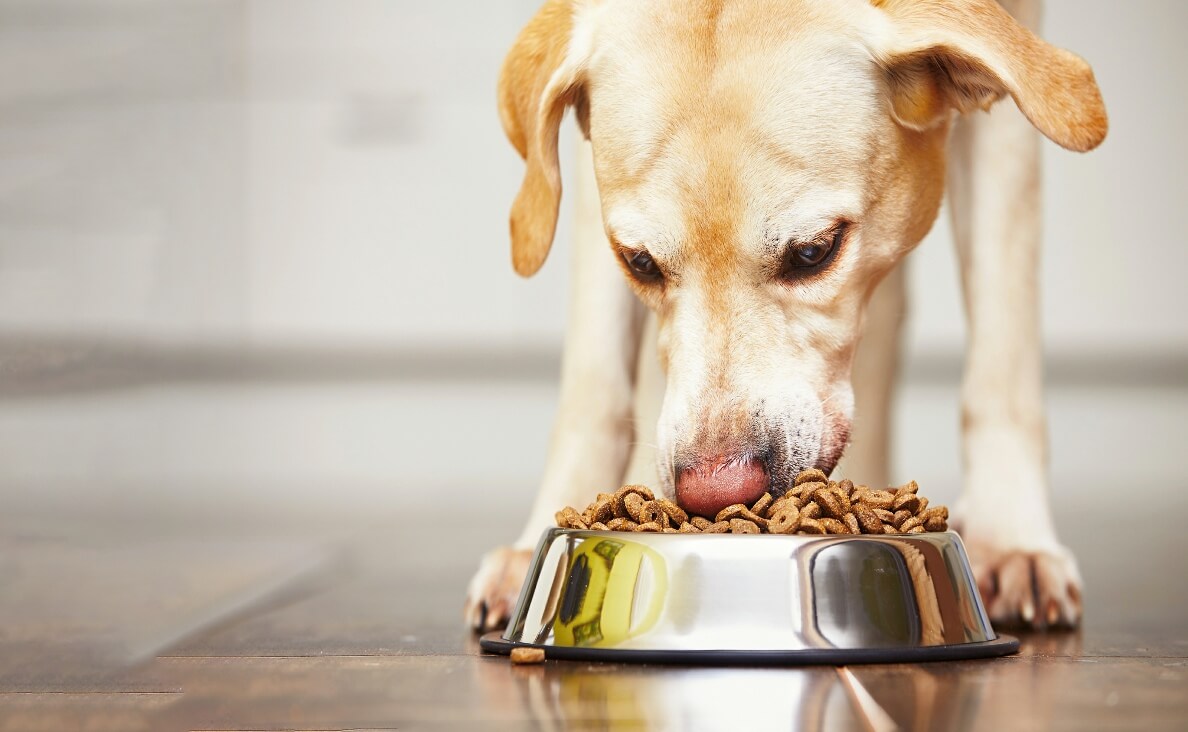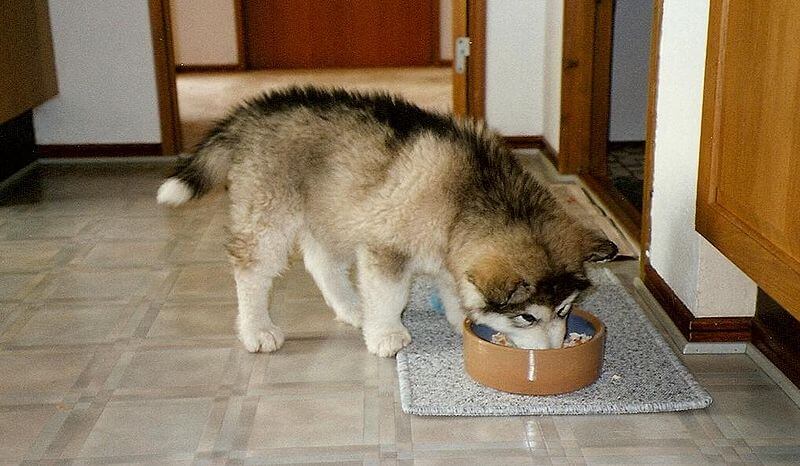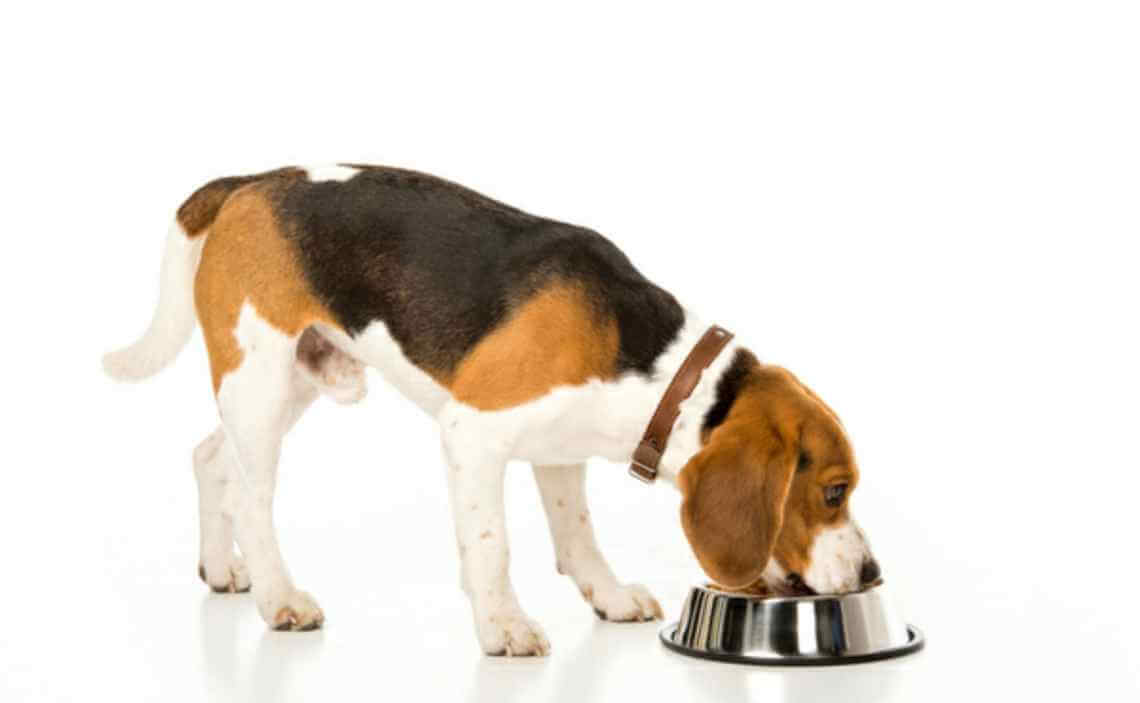
Probiotics is a hot topic for dog owners these days. Is there evidence to show probiotics actually helps dogs, and if so, what type of probiotics should we be giving them?
Today’s blog post will help you sort out the details when it comes to probiotics for dogs.
How Does a Dog’s Digestive System Work?
The place to start is to gain a basic understanding of how a dog’s digestive system works.
Just like humans, there is a complex ecosystem happening inside the canine digestive system. This ecosystem, called the microflora, consists of billions of microscopic bacteria, yeast and protozoa.
There are billions of microbes in the gastrointestinal system of all animals. These microbes aid in digestion, fight off potential pathogens, make nutrients and vitamins and bolster the immune system.
A dog’s immune system primarily resides in the gut – the small and large intestine. Approximately 70 percent of immunity-producing cells reside in the gut.
Keeping your dog’s digestive system functioning optimally is essential to making sure he or she stays healthy, active and lives a long life.

What are Probiotics?
Probiotics are live bacteria that live in the body, primarily the stomach, intestines and colon. They are considered “good” or “helpful” bacteria because they help keep your dog’s gut healthy. Probiotics are most often given as a supplement but also occur in many fermented foods, such as yogurt, sauerkraut and tempeh.
What are Prebiotics?
Prebiotics work together with probiotics to support helpful bacteria and other organisms to grow in your dog’s gut. Prebiotics occur naturally in fiber-rich foods, such as fruits, vegetables and whole grains. They occur as fiber your dog is unable to digest but serve as a host for probiotic colonies.
The most common prebiotic supplement prescribed for dogs is Fructooligosaccharides (FOS), but there are other types of prebiotics as well. Prebiotics are often included in probiotic supplements. Food sources of prebiotics include:
- Legumes (beans, lentils and peas)
- Whole grains
- Fruits
- Vegetables
- Jerusalem artichokes (sunchokes)

Reasons Your Dog May Require Probiotics
There is growing evidence to support the use of probiotics for dogs. Signs your dog may need a probiotic supplement include:
- Chronic gastrointestinal issues
- Obesity
- Liver disease
- Mood and behavior disorders
- Skin problems
- Gas and bloating
- Bad breath
- Allergy symptoms
- Yeast-associated disorders, such as ear infections
- Bladder infections
- Irregular bowel function
- Infection or bacterial imbalance
- Stress (may cause diarrhea)
- Dietary changes (or your dog eats something he or she shouldn’t)
- Aging
- Medications, such as antibiotics and long-term steroids kill good bacteria and often set chronic diarrhea in motion
- Parasites

Types of Probiotics for Dogs
There isn’t a one-size fits all probiotic for dogs. Each probiotic supplement contains one or more types of bacteria and yeast. Different types address different functions. For example, certain strains, such as Bifidobacterium, are known to help slow down the duration of diarrhea in dogs and for their overall immune-boosting properties. Other types, like Lactobacillus, have been shown to help dogs increase the absorption of nutrients and optimize their digestive systems.
Soil-Based Probiotics
Soil-based probiotics are species of bacteria found in soil. Soil-based probiotics are spore-forming, which means they form a hard coating that protects them from heat, stomach acids and most antibiotics. They are especially helpful for irritable bowel syndrome (IBS) and digestive issues, especially if your dog has a dairy intolerance.
What To Look for in Canine Probiotics
There is no one probiotic supplement suitable for all dogs and every health condition. The best approach is to set up an appointment with your veterinarian to determine the best probiotic strains for your dog and any health issues they are experiencing. The following probiotic strains have scientific evidence to support their safety and efficacy in dogs.
- Enterococcus faecium
- Lactobacillus acidophilus
- Lactobacillus casei
- Lactobacillus plantarum
- Bifodobacterium bifidum
- Bifidobacterium animalis
- VSL#3

Probiotics for dogs comes in several forms, including:
-
Yogurt or kefir with live cultures
If you give your dog yogurt or kefir, keep in mind yogurt cultures are used for the manufacture of the product; live cultures may not be present. Only give your dog unsweetened, plain yogurt. Read the label carefully to ensure there are no artificial sweeteners in the product.
Live probiotic cultures can be found in other fermented food products, such as raw goat milk, fermented vegetables, kimchi and tempeh.
-
Powders
Probiotic powders usually come in a packet form. Dogs eat them when sprinkled in their food or mixed with water.
-
Capsules
Probiotics come in capsule forms. These can be given in pill pockets or any other way you’ve found works for your pup. Is your dog rejecting his or her medicine? Check out this Canine Campus post: 10 Tips to Get Your Dog to Take Medicine.
-
Chews
Most dogs will eat these soft chews without a problem as a treat. Dosage is based on your dog’s weight.
-
Dog food
Live probiotics cultures are included in some dog food formulas. It is best to consult your veterinarian before selecting a probiotic-infused dog food to ensure you are feeding your dog the right formula to meet his or her needs.

When Regular Probiotics Can’t Help Your Dog
If you’ve given your dog probiotics for months and he or she isn’t getting any better. You might even see your dog’s symptoms worsening. The reality is that there are some instances in which probiotics don’t help and might even harm your dog.
-
Small Intestinal Bacteria Overgrowth (SIBO)
SIBO occurs when abnormally large numbers of bacteria grow in the small intestine. This will interfere with digestion and nutrient absorption.
Symptoms of SIBO include:
- Chronic or intermittent diarrhea
- Weight loss
- Gastroesophageal reflux disease (GERD)
- Gas
- Inflammatory Bowel Disease (IBS)
- Food intolerances
- Skin issues
- Leaky gut
SIBO can also be caused by diets that are high in sugar and carbohydrates, reduced gut motility or drugs that disrupt the microbiome (antibiotics and steroids).

Since SIBO is an overgrowth of bacteria, giving your dog probiotics is like adding fuel to the fire – depending on the probiotic you’re giving your dog.
Soil-based probiotics are effective in the case of SIBO because they don’t populate the small intestine.
-
After Antibiotics
A 2018 study found that giving Lactobacillus probiotics after antibiotic use caused a delay in the microbiome’s recovery. And the recovery was less complete compared to the group where no probiotics were given. Saccharomyces and soil-based probiotics are a better choice to restore your dog’s microbiome after antibiotics.
-
Lack of Diverse Bacteria
Sometimes probiotics don’t colonize for more than a few days in dogs. Or, they aren’t the right strains for your dog. Your dog’s microbiome is as individual as he or she is. Your dog’s digestive system needs to be a diverse community of thousands of different bacteria, fungi and viruses, all working together to maintain a healthy immune system.
For this reason, it’s important to use diet to bolster gut bacteria, include prebiotics and polyphenols. Polyphenols can be found in bright yellow, orange and red colored vegetables, such as chlorella, Jerusalem artichokes, mushrooms, dandelion, burdock root and apples.
Can I Give My Dog Probiotics Meant for Humans?
It is NOT recommended that you give your dog probiotics designed for human consumption. The digestive systems of humans and canines are very different; giving your dog human probiotics can cause extreme nausea, vomiting and diarrhea. They also may multiply too quickly in your dog’s system, causing severe infection or inflammation.
Your dog needs specific probiotic strains beneficial for canines. Your dog needs a probiotic supplement specific to its species.
Consistency is Key
When giving your dog probiotics, it’s important to remember this is an ongoing process. You are working to create colonies in your dog’s intestines, which takes time and consistency.
The canine gut is not an easy environment to heal and it’s hard for probiotics to survive in the intestines. By providing live cultures – in whatever form you choose – you’re working to giving them a chance to colonize.

Consistency is the key to feeding your dog probiotics. Be sure to follow your veterinarian’s recommendations on a regular basis and follow up if your dog doesn’t get better within a few weeks.
Have probiotics helped your dog? Please share your experience in the comments below…

 Cranial Cruciate Ligament Rupture in Dogs
Cranial Cruciate Ligament Rupture in Dogs 15 Things Every Dog Owner Should Know About Rabies
15 Things Every Dog Owner Should Know About Rabies How to Recognize and Manage Cognitive Dysfunction in Aging Dogs
How to Recognize and Manage Cognitive Dysfunction in Aging Dogs 10 Questions Your Veterinarian Wishes You Would Ask About Your Dog
10 Questions Your Veterinarian Wishes You Would Ask About Your Dog How to Care for a Dog with Cushing’s Disease: A Comprehensive Guide
How to Care for a Dog with Cushing’s Disease: A Comprehensive Guide






I just started using the probiotics by balanced breed and they help so much with regulating my dog’s bad breath and poop problems!
Glad you found something that works for your dog!
Great read! Probiotics can do wonders for our furry friends’ health and well-being. As a dog owner, it’s essential to be informed about the benefits and considerations of incorporating probiotics into their diet. Thanks for sharing this valuable information!
I’ve given my 11 year old ChiPin rescue, a probiotic’ every day (half dose) and after a year he’s had no digestive problems. His bowels work like they should, firm but moist, rejected easily. He seems happy and healthy.
Adopt
So glad to hear probiotics are helping your dog! It’s so helpful when dog parents share their experience!